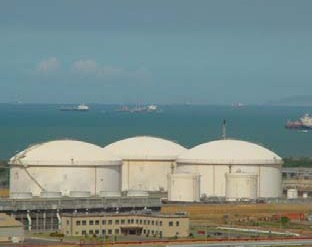Here is what you will find in this edition:
- Ask Doctor SIS: “The Bhopal Catastophe”, by Angela Summers
- “How is Partial Testing Accounted for in SIL Solver?”, by Hui Jin
- “Tank Farm Overfill Hazards”, by Bill Mostia
- “Risk Assessment Challenges to 20:20 Vision”, by Angela Summers
- “SIS-TECH Applications Group Provides Overfill Protection”, by Pete Fuller
- “SIS-TECH Provides Expertise in Loss Prevention”, by Watson Dupont
- Follow SIS-TECH on technical events and training calender
Ask Doctor SIS

Angela E. Summers Ph.D., P.E.
Recently, I was asked to share my experiences related to the Bhopal catastrophe for a special section in AIChE’s Process Safety Progress. The 30th anniversary of the catastrophe approaches, so for some people it may seem to have happened a long time ago. However, the causes, latent conditions, systematic failings, and human factors associated with this event are not of the past, but similar to those challenging industry today. I ask that you share my story with others in honor of those who suffered harm due to the Bhopal catastrophe. See more. . .
SIL Solver

Hui Jin Ph.D.
Q: How is partial testing accounted for in SIL Solver®?
A: Partial testing is a planned test that covers only part of the failure modes of an assembly or device. For example, partial stroke testing (PST) for valves is a partial testing. In PFDavg and Spurious Trip Rate (STR) calculation, accounting for partial testing is mathematically similar to the way we account for dangerous detected failure. SIL Solver® addresses partial testing in its datasheet. Considering a situation where monthly partial testing with 60 % coverage is applied to a particular device AA, with SIL Solver®, the user can:
- Create a datasheet for device AA, put in relevant reliability data
- Put the partial testing interval (in our example 730 hrs) to the cell for Diagnostic interval
- Put the partial testing coverage (in our example 60 %) to the cells for Diagnostic coverage (simplex, dual, and triplicate modes)
- Select desired voting and proof test interval, and save the datasheet
- Use this datasheet for device AA
- The 60 % coverage monthly partial testing is accounted in SIL Solver® for PFDavg and STR calculation
For the convenience of our users, a list of datasheet accounting for valve partial stroke testing is
provided in SIL Solver®.
Imperfect proof testing can be accounted for in a similar manner in SIL Solver®. However the main causes for imperfect proof testing are systematic failures. According to IEC 61511-1 clause 5.2.5.3 and clause 11.9, systematic failures should be addressed in the functional safety management plan and be excluded from PFDavg calculation.
Tank Farm Overfill Hazards

William L. Mostia P.E.
Driving around petrochemical plants, oil fields, and fuel distribution terminals it’s common to see large tank farms with vessels in which feedstocks, intermediates, and final products are stored. Many of these tank farms started out as remote sites, but plant expansions have sometimes met up with industrial and residential sprawl to increase the potential consequences of a disastrous event.
It is safe to say that thousands of filling, emptying, and transferring operations go on every day. The majority of these operations are done safely, but some result in overfills which have led to major incidents. See more. . .
Risk Assessment Challenges to 20:20 Vision

Angela E. Summers Ph.D., P.E.
Decision makers need reproducible, believable results to support investment decisions. A wide variety of hazard identification and risk analysis methods are available to support process safety decisions. All methods require knowledge in the fundamentals of process design and experience in the process operation under consideration. Every method has uncertainty and no method yields any better reflection of the risk than the level of engagement that the analyst or team has in the assessment. Traditional approaches work well on processes with a long history of operation, but are difficult to apply in the rapidly evolving environment of modern manufacturing.
The challenges that the risk analysis process is facing in today’s work environment include advances in chemical manufacturing techniques, the rapid evolution of vogue practices, the focus on hazard scenarios, the false security of calculations, the rampant pace of technology change, and the increase in complexity of human and automation interaction. See more. . .
SIS-TECH Applications Group Provides Overfill Protection . . .
 High/low level events challenge the safe and reliable operation of terminals and tank farms. Liquid overfill, or high level, can result in vessel damage and/or release of hazardous chemicals to the environment. Low level can result in loss of suction to transfer pumps with the potential for pump damage and can pose significant hazards when floating roof tanks are used.
High/low level events challenge the safe and reliable operation of terminals and tank farms. Liquid overfill, or high level, can result in vessel damage and/or release of hazardous chemicals to the environment. Low level can result in loss of suction to transfer pumps with the potential for pump damage and can pose significant hazards when floating roof tanks are used.
SIS-TECH Provides Expertise in Loss Prevention
 Watson Dupont – Chemical Engineer and Senior Consultant, will be teaching the Fundamentals of Process Hazard Analysis course in March, 2015. Watson has more than 30 years of experience with Amoco/BP including many facets of Process Safety Management such as HAZIDs, What-Ifs, and HAZOP studies for refineries and chemical process units. His project management skills include both offshore environmental management systems and land based projects with sulfur recovery trains, hydro-processing units, delayed coker, naphtha reformers, isomerization, bio-mass ethanol, crude/vacuum unit, and solid & hazardous waste management.
Watson Dupont – Chemical Engineer and Senior Consultant, will be teaching the Fundamentals of Process Hazard Analysis course in March, 2015. Watson has more than 30 years of experience with Amoco/BP including many facets of Process Safety Management such as HAZIDs, What-Ifs, and HAZOP studies for refineries and chemical process units. His project management skills include both offshore environmental management systems and land based projects with sulfur recovery trains, hydro-processing units, delayed coker, naphtha reformers, isomerization, bio-mass ethanol, crude/vacuum unit, and solid & hazardous waste management.
SIS-TECH Training Courses
 Nov. 18, 2014, SIL Verification Using Quantitative Techniques – 2 day course in verification of safety instrumented functions.
Nov. 18, 2014, SIL Verification Using Quantitative Techniques – 2 day course in verification of safety instrumented functions.
Nov. 20, 2014, SIL Solver – 1 day course using SIL Solver Software; a SIL verification tool.
Feb. 24, 2015, Instrumentation Technology – 3 day course on diversity of measurement devices, ancillary devices, applications, valves and SIL devices used in industry.
Mar. 2, 2015, TÜV Rheinland FSEng Training/Certificate – 4 day course in hazards identification techniques, requirements for designing and managing SIS. Certification is available.
Mar. 11, 2015, Process Hazard Analysis – 2 day course in fundamentals of the Process Hazard Analysis (PHA).
Mar. 24, 2015, SIS Implementation – 3 day course in an overview of the SIS management system – the Safety Lifecycle. Certification of completion from MKOPSC. An optional test may be taken to become PRISM-Certified.
